Assessment Data
noah schoolcraft
 USA
USA
If your test results are entered you can analyze where is the place for improvement in Analytics section
2023-04-28
filled in 92% (147 of 160)
Created: 2023-04-28 18:48
Modified: 2023-04-28 19:08
Basic data
Weight
140 lbsSubjective age
18 years oldAverage sleep duration
7 hoursDaily activity
Active Training-oriented nutrition
Most of the meals Climbing experience (excluding breaks)
2 yearsClimbing-specific training
4 days/weekVolume of climbing-specific training
5 hours/weekClimbing outdoors
10 days/yearDevelopment predisposition
Strength Training with coach
Regular Mental training/methods
Only when needed Overall workout
6 days/weekVolume of overall workout
10 hours/weekMassage or foam rolling
Only when needed Stretching
1 hours/week Average of 3 hardest leads ONSIGHTPrimary set
Average of 3 hardest leads ONSIGHTPrimary setOS lead level
5.11b YDS USA Average routes length
50 ftEnvironment
Gym Climbing angle
Mix  Average of 3 hardest leads REDPOINTPrimary set
Average of 3 hardest leads REDPOINTPrimary setRP lead level
5.12b YDS USA Average routes length
50 ftEnvironment
Gym Climbing angle
Heavy overhung / Roof  Average of 3 hardest boulders FLASHEDPrimary set
Average of 3 hardest boulders FLASHEDPrimary setFlash boulder level
V6 USA Environment
Gym Climbing angle
Mix  Average of 3 hardest boulders REDPOINTEDPrimary set
Average of 3 hardest boulders REDPOINTEDPrimary setRP boulder level
V8 USA Environment
Gym Climbing angle
Heavy overhung / Roof Strength / Power / Endurance
 half crimp dead hang @ 10 seconds -> MAWPrimary set
half crimp dead hang @ 10 seconds -> MAWPrimary set45 mm edge
150 lbs20 mm edge
80 lbs15 mm edge
50 lbs10 mm edge
10 lbs 3 finger dead hang @ 10 seconds -> MAWFull set
3 finger dead hang @ 10 seconds -> MAWFull set45 mm edge
30 lbs20 mm edge
20 lbs15 mm edge
10 lbs10 mm edge
0 lbs minimum edge dead hang @ 4 seconds -> MEFull set
minimum edge dead hang @ 4 seconds -> MEFull setminimum edge depth
6 mm continuous dead hang @ 40 - 100 seconds -> MHTPrimary set
continuous dead hang @ 40 - 100 seconds -> MHTPrimary set45 mm edge
100 seconds20 mm edge
67 seconds15 mm edge
40 seconds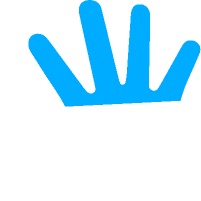 7/3 repeaters dead hangs @ >160 seconds -> MRPrimary set
7/3 repeaters dead hangs @ >160 seconds -> MRPrimary set45 mm edge
160 seconds20 mm edge
90 seconds15 mm edge
50 seconds 90° lock-off @ 10 seconds -> MAWPrimary set
90° lock-off @ 10 seconds -> MAWPrimary setboth hands - easy
50 lbsleft hand - hard
10 lbsright hand - hard
0 lbs 3 pull-ups -> MAWFull set
3 pull-ups -> MAWFull set3 pull-ups
100 lbs campus power slap -> MaxDPrimary set
campus power slap -> MaxDPrimary setleft arm
40 inchesright arm
42 inches 90° bent arm hang -> MHTPrimary set
90° bent arm hang -> MHTPrimary setboth hands - easy
60 secondsleft hand - hard
20 secondsright hand - hard
15 seconds 90° dip hold -> MHTFull set
90° dip hold -> MHTFull set90° dip hold
30 seconds pull-ups -> MRPrimary set
pull-ups -> MRPrimary setpull-ups
24  dips -> MRFull set
dips -> MRFull setdips
13  core flexor strength -> MHTPrimary set
core flexor strength -> MHTPrimary set90° L-hang - easy
10 seconds45° front lever - hard
4 seconds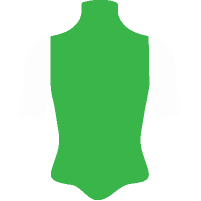 modified L-sit -> MHTPrimary set
modified L-sit -> MHTPrimary setknees bent - easy
80 secondsstraight legs - hard
10 seconds tummy-to-table two leg hold -> MHTPrimary set
tummy-to-table two leg hold -> MHTPrimary settummy-to-table two leg hold
30 seconds windshield wipers -> MRFull set
windshield wipers -> MRFull seton the floor - easy
14 on the bar - hard
4  tummy-to-table leg raises -> MRFull set
tummy-to-table leg raises -> MRFull settummy-to-table leg raises
20  planks -> MHTFull set
planks -> MHTFull setleft side plank
85 secondsright side plank
97 secondsreverse plank
50 seconds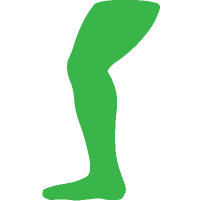 side single leg bridge -> MHTFull set
side single leg bridge -> MHTFull setleft leg
40 secondsright leg
37 seconds pistol squats with half foot support -> MRPrimary set
pistol squats with half foot support -> MRPrimary setleft leg
5 right leg
11 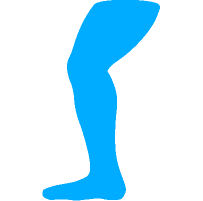 wall sit -> MHTFull set
wall sit -> MHTFull setwall sit
189 seconds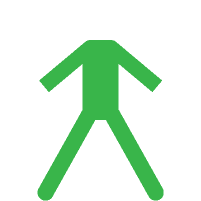 burpees @ 90 seconds -> MRPrimary set
burpees @ 90 seconds -> MRPrimary setburpees
17 Mobility / Flexibility
• bends down -> MinDPrimary set
forward bend down to the toes
0 inchesleft side bend down
24 inchesright side bend down
25 inches• hip rotation -> MaxDPrimary set
knees span
30 inchesheels span
37 inches• side split -> MaxDPrimary set
side split
40 inches• 90° wall angel -> MinDPrimary set
up wall angel
0 inchesdown wall angel
0 inches• shoulder reach behind -> MinDPrimary set
left arm up, right arm down
0 inchesright arm up, left arm down
0 inches• trunk rotation -> MaxDPrimary set
trunk rotated the left
20 inchestrunk rotated the right
23 inches• leg raise -> MaxDPrimary set
left leg raise - straight knee
37 inchesright leg raise - straight knee
40 inchesleft leg raise - bend knee
28 inchesright leg raise - bend knee
30 inchesBalance / Coordination
• reaching balance -> MaxDPrimary set
left arm reach
40 inchesright arm reach
42 inches• eyes closed one leg stand -> MHTPrimary set
eyes closed one leg stand
14 secondsMental
When I make a mistake in my movements while climbing, it doesn't distract me, I make do and push on.
Always
I know how to manage my focus while climbing.
Sometimes
I can get my attention back to the "here and now" and focus on the task if something distracts me.
Always
I can cut myself off from everyday problems and unpleasant situations that have happened before to focus on climbing with a clear head.
Often
On competition day or before pulling onto rock I focus only on my task, on movement, and on what helps me to be focused and confident.
Always
I know what can distract me while climbing (noise, sun, wind, other climbers, comments, slippery foothold or hold) and I can control it.
Always
After falling off I can refocus for another attempt.
Always
My mind races before I pull on and during climbing or I talk to myself too much.
Often
I pay attention to my emotions before, during, and after climbing.
Always
When I rest in the middle of a climb, I feel what happens in my muscles and I can determine the moment I should continue climbing.
Always
I can control anger / sadness / frustration after a failed attempt / falling off.
Often
When I feel anxiety before climbing at competitions or the crag, I can control it and reduce it with my techniques, e.g. calm breathing, remembering effective trials, successes, etc.
Sometimes
I become unnecessarily tense/angry/uptight before difficult movements because of nervousness.
Often
Before pulling onto a difficult route or a boulder I can put myself into optimal arousal for climbing.
Sometimes
I know what affects my level of nervousness before and during climbing (f.ex. the uncertainty of movement, own or environmental pressure, grade of the route, rank of the competition, etc.).
Always
Climbing over the clip or tricky clipping causes me a sudden increase of nerves (tremor, anxiety) and a loss of flow in my climbing.
Often
I'm aware of what I say to myself inside my head before, during, and after climbing.
Always
My mind races when I approach a difficult spot or a crux.
Often
I can stay positive even after an unsuccessful start in a competition or a bad day at the crag and make constructive conclusions.
Always
I'm aware of my thoughts about any long standing projects before I approach them, I manage these thoughts and how they affect my attitude.
Always
I have a plan for what I say to myself while climbing.
Sometimes
When I say positive things to myself I feel calmer.
Sometimes
I can successfully motivate myself by encouraging myself inside my head or to myself.
Always
I use my favorite "key/anchor" words f. ex. I can do it, hold it, you are strong, breathe now!
Always
When I'm climbing, I expect that I will give my best and send a route or a boulder.
Always
I enjoy taking part in competitions or climbing outside even if I fail or send the route inefficiently.
Always
Difficult places on the route or environmental adversities are a problem for me and I have difficulties finding solutions.
Often
Skills development is crucial or important in my climbing and I have an overall plan for my development.
Always
While climbing a project or in competitions I only think about not falling off, not losing to a rival, not being last place.
Sometimes
I often choose routes that are difficult for me, but possible to send (does not apply to warm-up or cool down at the end of the day or injury situations).
Sometimes
Failures in climbing are acceptable to me.
Always
I trust my training plan and I believe that the goals I’ve chosen are appropriate.
Always
I know what my goals for the day are when I go into training or show up at the crag.
Often
I know what is important and valuable to me in climbing.
Always
Before the start of the climbing season I set a main climbing goal.
Often
I know what steps led me to achieve my climbing goal.
Often
I have a training plan for each season.
Rarely
I regularly check my training plan and progress with regard to increasing my climbing skills and physical capabilities.
Rarely
After the end of the season I take stock of how I performed on my climbing goals.
Always
I get nervous and I can't control it before climbing a new route, even below my limit.
Rarely
I go out of my comfort zone and fight to the end, despite high probability of falling off.
Always
I decide to make difficult moves even when I'm high above the quickdraw or high on a boulder.
Always
I pay attention to the opinions of others and negative comments if I do poorly on the route or in competition.
Never
I have symptoms such as: palpitations, sweaty hands, shortness of breath, dry mouth or tightness/cramps in the stomach before a competition or important/difficult move.
Often
When the planned sequence doesn’t work or it becomes difficult I tell my belayer to take.
Never
While climbing I focus on the moves, rather than thinking of what can happen if I fall.
Often
During climbing I focus on whether the equipment works fine, instead of climbing.
Often
I am terrified by the fact that I may lose control over my climbing (slipping out from a foot hold, wrong sequence, extreme nervousness, etc.).
Sometimes
My self-confidence is stable regardless of bad results at competitions or failure on rock.
Often
I'm nervous about climbing onsight / my project / a competition route due to uncertainty of the result and possible shame.
Always
I try new routes and boulders that require skills I don't have in order to learn something, even if it ends with falling off and me looking bad to other climbers.
Always
I believe in my climbing capabilities and that I will achieve everything I plan.
Always
I make difficult and surprising moves that I've never done before at the limit of my abilities.
Often
When climbing I am sure of my physical, technical, and mental preparation.
Always
When climbing RedPoint, I am sure that I will give 100% to accomplish each of the trained sequences.
Always
After an unsuccessful attempt I make or look for excuses for external reasons only.
Sometimes
I use visualization before each climbing attempt.
Always
I can imagine doing my climbing task using kinesthetic sense (f.eg. load on fingers, type of friction, shoulder tension, legs tension, body position, etc.).
Always
I recall my best ascents and competitions and feel positive about my success.
Always
I have difficulty forming a vivid, dynamic, colorful, and multi-sensory image of myself climbing (sense of sight, hearing, etc.).
Sometimes
When I choose a climbing goal I train regularly by imagining the send before my trip to the crag.
Always
I use visualization to bring about the right emotional state, relax my body, and focus before competition or important real rock projects during climbing.
Always
I watch better climbers than myself during live competitions or in movies to improve my climbing technique.
Always
I can imagine the entire sequence of moves or sequences in the most important places, including foot holds and holds, in their actual order.
Always
 Share
Share